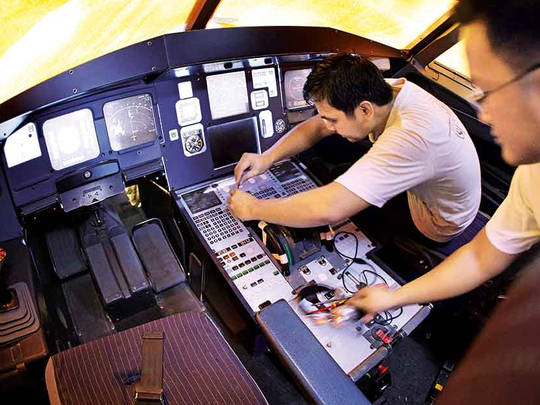
Ras Al Khaimah (RAK) is fast emerging as one of the most interesting destinations on the global business investments map. The emirate was named among the top ten small and mid-sized global cities of the future, alongside Zurich, Geneva and Edinburgh, by the London-based Financial Times’ fDi magazine.
Last month, Fitch Ratings affirmed the emirate’s A status, with a stable outlook. The rating takes into account the benefits of federal membership, low government debt, high GDP per capita and governance indicators close to the A median. “These strengths are balanced against the emirate’s small size and weaknesses in the policy framework, including the poor availability of economic data,” the report said.
As one of the UAE’s fastest-growing emirates, RAK’s economy has expanded almost 8 per cent over the past few years, with GDP having crossed Dh30 billion in 2015, the latest year for which official figures are available.
There are concerns that the UAE is facing unstable macroeconomic trends related to oil prices. However, RAK escapes this, as only about 4.8 per cent of its GDP is dependent on oil, according to Standard & Poors. “We expect real GDP growth in RAK will increase to about 3 per cent in coming years, thanks to the increase in business activity ahead of Expo 2020 in Dubai and capital spending in the GCC region,” S&P says in its report on the emirate.
Attracting companies
As a result of legal and government reforms by His Highness Shaikh Saud Bin Saqr Al Qasimi, Supreme Council Member and Ruler of Ras Al Khaimah, investment has flowed into the emirate. The now buzzing Ras Al Khaimah Economic Zone (RAKEZ), formed after a merger of the RAK Free Trade Zone and RAK Investment Authority, brings together more than 13,000 companies from over 100 countries.
“Indian investors make up 22.7 per cent of RAKEZ’s business community. That’s more than 3,100 Indian companies flourishing in various sectors,” says Ramy Jallad, Group CEO, RAKEZ, RAK FTZ and RAKIA. “Investors from the UK are also well represented in RAKEZ at 7.4 per cent or over 1,000 companies while Emirati investors are at 5.5 per cent or over 750. Pakistanis, French, Germans and Jordanians are also among our major investors.”
RAKEZ is now specifically wooing companies from some of the world’s fastest growing markets, including Brazil and China. “Brazilian investors have expressed key interest in exploring business opportunities in the UAE, especially across its different emirates,” says Dr Michel Alaby, Secretary-General and CEO, Arab-Brazilian Chamber of Commerce, which recently hosted a delegation of Brazilian companies to the emirate.
“RAK proves to be a very strategic location for Brazilian companies, offering the option of using the free zone as a hub to serve the Gulf market, as well as those of Pakistan, India, Iran and the former Soviet republics.”
Looking ahead, RAKEZ anticipates a 6 per cent increase in the number of registered companies in 2017 over the previous year, in line with its being ranked 45th in the world for ease of doing business by the World Bank in 2016. It’s no surprise then that it’s a natural choice as a premier investment destination for both large enterprises and start-ups.


